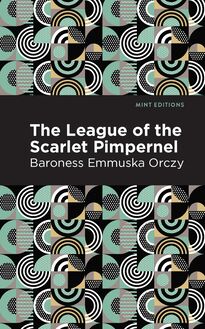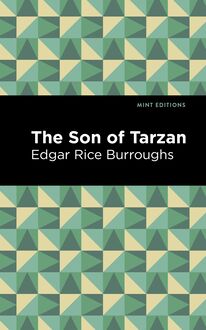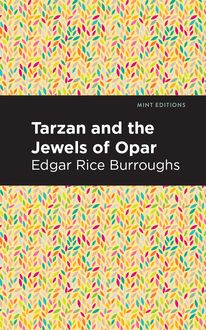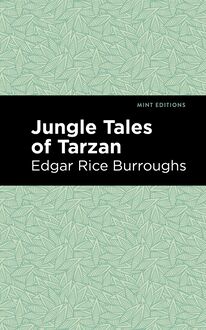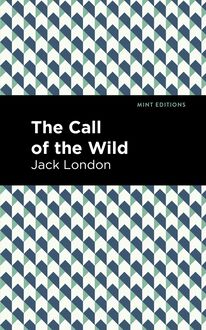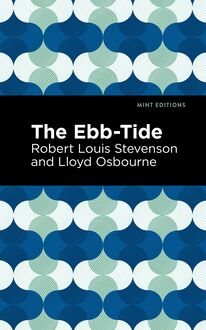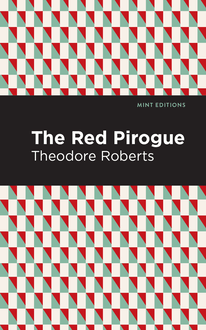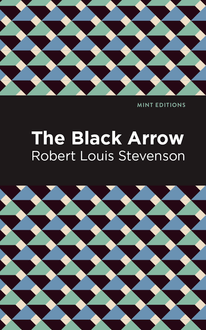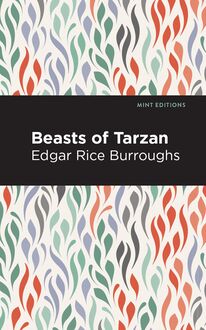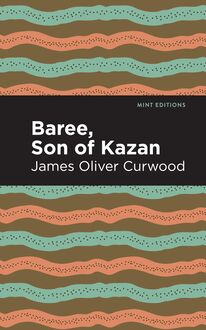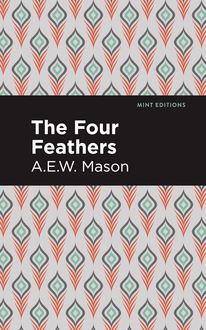-
 Univers
Univers
-
 Ebooks
Ebooks
-
 Livres audio
Livres audio
-
 Presse
Presse
-
 Podcasts
Podcasts
-
 BD
BD
-
 Documents
Documents
-
- Cours
- Révisions
- Ressources pédagogiques
- Sciences de l’éducation
- Manuels scolaires
- Langues
- Travaux de classe
- Annales de BEP
- Etudes supérieures
- Maternelle et primaire
- Fiches de lecture
- Orientation scolaire
- Méthodologie
- Corrigés de devoir
- Annales d’examens et concours
- Annales du bac
- Annales du brevet
- Rapports de stage
La lecture à portée de main
Vous pourrez modifier la taille du texte de cet ouvrage
Découvre YouScribe en t'inscrivant gratuitement
Je m'inscrisDécouvre YouScribe en t'inscrivant gratuitement
Je m'inscrisEn savoir plus
Vous pourrez modifier la taille du texte de cet ouvrage
En savoir plus

Description
The Black Arrow, first serialized in 1883, was eventually published as a novel by Robert Louis Stevenson in 1888. Although it was initially written for children, and has since remained relatively undervalued by critics, The Black Arrow has garnered praise from such figures as John Galsworthy for its richly imagined setting and vibrant dialogue.
Set in fifteenth-century England during the infamous War of the Roses, The Black Arrow follows the young Richard “Dick” Shelton’s journey of growth and discovery in a time of violence and terror. When the outlaws known as The Black Arrow attack his home, a strange rhyme discovered at the scene leaves Dick curious as to the true nature of his father’s death. Sent to warn Sir Daniel—who has been chosen to care for Tunstall until Dick comes of age—the hero meets the heiress Joanna. The two follow Sir Daniel back to Tunstall, where Dick discovers that his father was murdered by the man appointed to protect him. In order to get revenge, and to rescue Joanna from captivity, Dick joins the outlaws of The Black Arrow and is knighted for his service in battle to the Duke of Gloucester. A classic of adventure and romance, The Black Arrow is a novel in which a young man faces down danger in order to protect what he loves.
Published amid what is arguably Stevenson’s most productive decade, The Black Arrow is often overshadowed by such works as Treasure Island and Kidnapped. What makes it worth reading, however, is its timeless tale of perseverance and growth that transports the reader to one of England’s darkest periods. It is both historical and romantic, a story for children and adults alike. To read Stevenson is to enter a world unlike any other, and yet so strangely familiar it might be our own.
With a beautifully designed cover and professionally typeset manuscript, this new edition of Robert Louis Stevenson’s The Black Arrow is a classic of literature reimagined for modern readers.
Sujets
Informations
| Publié par | Mint Editions |
| Date de parution | 29 novembre 2020 |
| Nombre de lectures | 1 |
| EAN13 | 9781513266787 |
| Langue | English |
Informations légales : prix de location à la page 0,0500€. Cette information est donnée uniquement à titre indicatif conformément à la législation en vigueur.
Extrait
The Black Arrow
Robert Louis Stevenson
The Black Arrow was first published in 1883.
This edition published by Mint Editions 2020.
ISBN 9781513266343 | E-ISBN 9781513266787
Published by Mint Editions®
minteditionbooks.com
Publishing Director: Jennifer Newens
Project Manager: Gabrielle Maudiere
Design & Production: Rachel Lopez Metzger
Typesetting: Westchester Publishing Services
C ONTENTS C RITIC ON THE H EARTH P ROLOGUE —J OHN A MEND -A LL B OOK 1. T HE T WO L ADS 1. A T THE S IGN OF THE S UN IN K ETTLEY 2. I N THE F EN 3. T HE F EN F ERRY 4. A G REENWOOD C OMPANY 5. “B LOODY AS THE H UNTER ” 6. T O THE D AY ’ S E ND 7. T HE H OODED F ACE B OOK 2. T HE M OAT H OUSE 1. D ICK A SKS Q UESTIONS 2. T HE T WO O ATHS 3. T HE R OOM O VER THE C HAPEL 4. T HE P ASSAGE 5. H OW D ICK C HANGED S IDES B OOK 3. M Y L ORD F OXHAM 1. T HE H OUSE BY THE S HORE 2. A S KIRMISH IN THE D ARK 3. S T . B RIDE ’ S C ROSS 4. T HE G OOD H OPE 5. T HE G OOD H OPE ( CONTINUED ) 6. T HE G OOD H OPE ( CONCLUDED ) B OOK 4. T HE D ISGUISE 1. T HE D EN 2. “I N M INE E NEMIES ’ H OUSE ” 3. T HE D EAD S PY 4. I N THE A BBEY C HURCH 5. E ARL R ISINGHAM 6. A RBLASTER A GAIN B OOK 5. C ROOKBACK 1. T HE S HRILL T RUMPET 2. T HE B ATTLE OF S HOREBY 3. T HE B ATTLE OF S HOREBY ( CONCLUDED ) 4. T HE S ACK OF S HOREBY 5. N IGHT IN THE W OODS : A LICIA R ISINGHAM 6. N IGHT IN THE W OODS ( CONCLUDED ): D ICK AND J OAN 7. D ICK ’ S R EVENGE 8. C ONCLUSION
C RITIC ON THE H EARTH
N o one but myself knows what I have suffered, nor what my books have gained, by your unsleeping watchfulness and admirable pertinacity. And now here is a volume that goes into the world and lacks your imprimatur : a strange thing in our joint lives; and the reason of it stranger still! I have watched with interest, with pain, and at length with amusement, your unavailing attempts to peruse The Black Arrow ; and I think I should lack humour indeed, if I let the occasion slip and did not place your name in the fly-leaf of the only book of mine that you have never read—and never will read.
That others may display more constancy is still my hope. The tale was written years ago for a particular audience and (I may say) in rivalry with a particular author; I think I should do well to name him, Mr. Alfred R. Phillips. It was not without its reward at the time. I could not, indeed, displace Mr. Phillips from his well-won priority; but in the eyes of readers who thought less than nothing of Treasure Island , The Black Arrow was supposed to mark a clear advance. Those who read volumes and those who read story papers belong to different worlds. The verdict on Treasure Island was reversed in the other court; I wonder, will it be the same with its successor?
R. L. S.
S ARANAC L AKE , April 8, 1888.
P ROLOGUE
John Amend-All
O n a certain afternoon, in the late springtime, the bell upon Tunstall Moat House was heard ringing at an unaccustomed hour. Far and near, in the forest and in the fields along the river, people began to desert their labours and hurry towards the sound; and in Tunstall hamlet a group of poor country-folk stood wondering at the summons.
Tunstall hamlet at that period, in the reign of old King Henry VI, wore much the same appearance as it wears to-day. A score or so of houses, heavily framed with oak, stood scattered in a long green valley ascending from the river. At the foot, the road crossed a bridge, and mounting on the other side, disappeared into the fringes of the forest on its way to the Moat House, and further forth to Holywood Abbey. Half-way up the village, the church stood among yews. On every side the slopes were crowned and the view bounded by the green elms and greening oak-trees of the forest.
Hard by the bridge, there was a stone cross upon a knoll, and here the group had collected—half a dozen women and one tall fellow in a russet smock—discussing what the bell betided. An express had gone through the hamlet half an hour before, and drunk a pot of ale in the saddle, not daring to dismount for the hurry of his errand; but he had been ignorant himself of what was forward, and only bore sealed letters from Sir Daniel Brackley to Sir Oliver Oates, the parson, who kept the Moat House in the master’s absence.
But now there was the noise of a horse; and soon, out of the edge of the wood and over the echoing bridge, there rode up young Master Richard Shelton, Sir Daniel’s ward. He, at the least, would know, and they hailed him and begged him to explain. He drew bridle willingly enough—a young fellow not yet eighteen, sun-browned and grey-eyed, in a jacket of deer’s leather, with a black velvet collar, a green hood upon his head, and a steel cross-bow at his back. The express, it appeared, had brought great news. A battle was impending. Sir Daniel had sent for every man that could draw a bow or carry a bill to go post-haste to Kettley, under pain of his severe displeasure; but for whom they were to fight, or of where the battle was expected, Dick knew nothing. Sir Oliver would come shortly himself, and Bennet Hatch was arming at that moment, for he it was who should lead the party.
“It is the ruin of this kind land,” a woman said. “If the barons live at war, ploughfolk must eat roots.”
“Nay,” said Dick, “every man that follows shall have sixpence a day, and archers twelve.”
“If they live,” returned the woman, “that may very well be; but how if they die, my master?”
“They cannot better die than for their natural lord,” said Dick.
“No natural lord of mine,” said the man in the smock. “I followed the Walsinghams; so we all did down Brierly way, till two years ago, come Candlemas. And now I must side with Brackley! It was the law that did it; call ye that natural? But now, what with Sir Daniel and what with Sir Oliver—that knows more of law than honesty—I have no natural lord but poor King Harry the Sixt, God bless him!—the poor innocent that cannot tell his right hand from his left.”
“Ye speak with an ill tongue, friend,” answered Dick, “to miscall your good master and my lord the king in the same libel. But King Harry—praised be the saints!—has come again into his right mind, and will have all things peaceably ordained. And as for Sir Daniel, y’ are very brave behind his back. But I will be no tale-bearer; and let that suffice.”
“I say no harm of you, Master Richard,” returned the peasant. “Y’ are a lad; but when ye come to a man’s inches, ye will find ye have an empty pocket. I say no more: the saints help Sir Daniel’s neighbours, and the Blessed Maid protect his wards!”
“Clipsby,” said Richard, “you speak what I cannot hear with honour. Sir Daniel is my good master, and my guardian.”
“Come, now, will ye read me a riddle?” returned Clipsby. “On whose side is Sir Daniel?”
“I know not,” said Dick, colouring a little; for his guardian had changed sides continually in the troubles of that period, and every change had brought him some increase of fortune.
“Ay,” returned Clipsby, “you, nor no man. For, indeed, he is one that goes to bed Lancaster and gets up York.”
Just then the bridge rang under horse-shoe iron, and the party turned and saw Bennet Hatch come galloping—a brown-faced, grizzled fellow, heavy of hand and grim of mien, armed with sword and spear, a steel salet on his head, a leather jack upon his body. He was a great man in these parts; Sir Daniel’s right hand in peace and war, and at that time, by his master’s interest, bailiff of the hundred.
“Clipsby,” he shouted, “off to the Moat House, and send all other laggards the same gate. Bowyer will give you jack and salet. We must ride before curfew. Look to it: he that is last at the lych-gate Sir Daniel shall reward. Look to it right well! I know you for a man of naught. Nance,” he added, to one of the women, “is old Appleyard up town?”
“I’ll warrant you,” replied the woman. “In his field, for sure.”
So the group dispersed, and while Clipsby walked leisurely over the bridge, Bennet and young Shelton rode up the road together, through the village and past the church.
“Ye will see the old shrew,” said Bennet. “He will waste more time grumbling and prating of Harry the Fift than would serve a man to shoe a horse. And all because he has been to the French wars!”
The house to which they were bound was the last in the village, standing alone among lilacs; and beyond it, on three sides, there was open meadow rising towards the borders of the wood.
Hatch dismounted, threw his rein over the fence, and walked down the field, Dick keeping close at his elbow, to where the old soldier was digging, knee-deep in his cabbages, and now and again, in a cracked voice, singing a snatch of song. He was all dressed in leather, only his hood and tippet were of black frieze, and tied with scarlet; his face was like a walnut-shell, both for colour and wrinkles; but his old grey eye was still clear enough, and his sight unabated. Perhaps he was deaf; perhaps he thought it unworthy of an old archer of Agincourt to pay any heed to such disturbances; but neither the surly notes of the alarm bell, nor the near approach of Bennet and the lad, appeared at all to move him; and he continued obstinately digging, and piped up, very thin and shaky:
“Now, dear lady, if thy will be,
I pray you that you will rue on me.”
“Nick Appleyard,” said Hatch, “Sir Oliver commends him to you, and bids that ye shall come within this hour to the Moat House, there to take command.”
The old fellow looked up.
“Save you, my masters!” he said, grinning. “And where goeth Master Hatch?”
“Master Hatch is off to Kettley, with every man that we can horse,” returned Bennet. “There is a fight toward, it seems, and my lord stays a reinforcement.”
“Ay, verily,” returned Appleyard. “And what will ye leave me to garrison withal?”
“I leave you six good men, and Sir Oliver to boot,” answered Hatch.
“It’ll not hold the place,” said Appleyard; “the number sufficeth not. It would take two score to make
-
 Univers
Univers
-
 Ebooks
Ebooks
-
 Livres audio
Livres audio
-
 Presse
Presse
-
 Podcasts
Podcasts
-
 BD
BD
-
 Documents
Documents
-
Jeunesse
-
Littérature
-
Ressources professionnelles
-
Santé et bien-être
-
Savoirs
-
Education
-
Loisirs et hobbies
-
Art, musique et cinéma
-
Actualité et débat de société
-
Jeunesse
-
Littérature
-
Ressources professionnelles
-
Santé et bien-être
-
Savoirs
-
Education
-
Loisirs et hobbies
-
Art, musique et cinéma
-
Actualité et débat de société
-
Actualités
-
Lifestyle
-
Presse jeunesse
-
Presse professionnelle
-
Pratique
-
Presse sportive
-
Presse internationale
-
Culture & Médias
-
Action et Aventures
-
Science-fiction et Fantasy
-
Société
-
Jeunesse
-
Littérature
-
Ressources professionnelles
-
Santé et bien-être
-
Savoirs
-
Education
-
Loisirs et hobbies
-
Art, musique et cinéma
-
Actualité et débat de société
- Cours
- Révisions
- Ressources pédagogiques
- Sciences de l’éducation
- Manuels scolaires
- Langues
- Travaux de classe
- Annales de BEP
- Etudes supérieures
- Maternelle et primaire
- Fiches de lecture
- Orientation scolaire
- Méthodologie
- Corrigés de devoir
- Annales d’examens et concours
- Annales du bac
- Annales du brevet
- Rapports de stage
